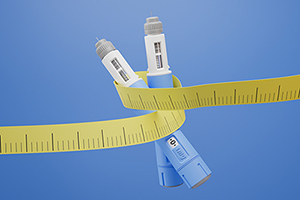



Scientists in London have developed a urine test that measures the healthfulness of an individual’s diet.
Published in the journal Lancet Diabetes and Endocrinology, the study utilizes a quick five-minute test which measures metabolites of foods caused by their breakdown, such as fish, poultry, red meat and produce. This urine analysis also reveals how much sugar, fiber, fat and protein a person has consumed.
 What’s exciting about this new development is that this easy test can be a more definitive way for scientific researchers to measure a person’s food intake rather than relying on the heavily used Food Frequency Questionnaire (FFQ), an often used but unreliable tool rampant with recall bias and inaccurate diet reporting.
What’s exciting about this new development is that this easy test can be a more definitive way for scientific researchers to measure a person’s food intake rather than relying on the heavily used Food Frequency Questionnaire (FFQ), an often used but unreliable tool rampant with recall bias and inaccurate diet reporting.
As one of the researchers, Professor Gary Frost, attests, “A major weakness in all nutrition and diet studies is that we have no true measure of what people eat. We rely solely on people keeping logs of their daily diets—but studies suggest around 60 percent of people misreport what they eat to some extent. This test could be the first independent indicator of the quality of a person’s diet—and what they are really eating.”
Study participants were asked to follow four different diets ranging from healthy to very unhealthy using the World Health Organization’s dietary guidelines. The participants then followed their assigned diets for three days while residing in a research facility in London, where scientists collected urine samples in the morning, afternoon and evening.
To determine the accuracy of this new test, scientists contrasted it with data from previous research—which included 291 subjects, and concluded their results were reliable. Professor John Mathers, a co-author of the present study said, “For the first time, this research offers an objective way of assessing the overall healthiness of people’s diets without all the hassles, biases, and errors of recording what they’ve eaten.”
While the research team needs to refine this new technology by testing it on larger populations, they are hoping to make the test available for public use within the next two years. The utility of this new testing can be applied to weight loss programs as well as therapeutic diet use, as in cardiac rehabilitation.
Ultimately, the ability to measure more accurately what people consume will benefit public health by strengthening the validity and reliability of the methodology used in nutrition research.
To your health!
I Garcia-Perez, JM Posma, R Gibson, et al. Objective assessment of dietary patterns by use of metabolic phenotyping: a randomized, controlled, crossover trial. The Lancet Diabetes & Endocrinology. 2017.
As you may know, I’ve been doing a weekly “Q&A with Leyla” podcast feature with Dr. Hoffman. Now you can get my perspective and expertise every Friday on my own episode of the Intelligent Medicine Podcast. If you missed last week’s, you can listen here. To be sure you don’t miss out on any of my important insights and information, subscribe today!
Though we think of declining estrogen as the hallmark of menopause, it's actually common for…

Up to 12 percent of Americans have ulcers at some point in life. Peptic ulcers…
Gallbladder disease is a modern illness. An estimated 20 million Americans have gallbladder disease. The…

New, more powerful weight loss drugs: Drugs like Wegovy, Rybelsus, Ozempic and Mounjaro/Zepbound are revolutionizing…

According to the Lancet, autoimmune disease affects one in ten people globally and it’s now…

This past week we were regaled with headlines like: High levels of niacin may increase…

Leyla Weighs In: The Erosion of Trust in Nutritional Research

Our virtual voicemail is open 24/7, so there's no need to wait to submit your questions for Dr. Hoffman. Leave a message, and you may hear your question featured on the Intelligent Medicine radio program!